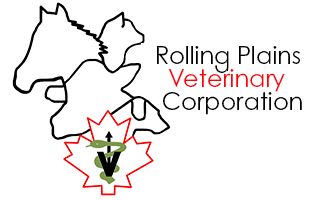Frequently Asked Questions About Importing Dogs from Canada
October 11, 2024 2:40 pm Leave your thoughts
When bringing a new furry family member into your home, especially one from a different country, the process can be overwhelming. The excitement of adopting or purchasing a dog from Canada may come with questions, concerns, and curiosity about how the process works. Fear not! We’ve compiled a list of frequently asked questions to guide you through the steps of importing a dog from Canada into the United States. Whether you’re wondering about paperwork, vaccines, or those ever-important CDC dog import questions, we’ve got you covered.
Let’s dig in!
Why Would Someone Import a Dog from Canada?
People import dogs for many reasons, and Canada is a popular choice for a few key factors:
- Breeds Availability: Some dog breeds are more common or affordable in Canada. You might find more options north of the border if you’re searching for a specific breed, such as a rare or hypoallergenic breed.
- Adoption Opportunities: Canadian shelters and rescues may have a variety of dogs, and adopting a dog from Canada can help ease the strain on Canadian shelters.
- Rehoming or Moving: Sometimes, people need to bring their dogs with them when relocating from Canada to the U.S.
Regardless of your reason, it’s important to ensure that you meet all the requirements for importing a dog.
What Are the CDC Requirements for Importing Dogs from Canada?
The Centers for Disease Control and Prevention (CDC) governs the health regulations for animals, including dogs, being imported into the United States. Fortunately, importing a dog from Canada is relatively straightforward, but it does come with some requirements:
- Rabies Vaccination: According to the CDC, Canada is not considered a high-risk country for rabies transmission, which makes the import process more manageable. However, if your dog is older than three months, they must be vaccinated against rabies at least 30 days before entry into the U.S.
- Rabies Certificate: You must provide proof of rabies vaccination in the form of a certificate from a licensed veterinarian. This should include the vaccine’s name, lot number, manufacturer, and date of administration.
- Health Check: The CDC may require an overall health examination for your dog, especially if they appear unwell upon entry. Though not always mandatory, having a clean bill of health from a veterinarian before your journey is a good idea.
Don’t forget to check with the CDC directly for the most current rules regarding dog importation, as regulations can change.
What Paperwork Do I Need to Import a Dog from Canada?
Before crossing borders with your furry friend, you’ll need some important documents:
- Rabies Vaccination Certificate: As mentioned, this is a critical document. Make sure it’s up-to-date and easy to access.
- Health Certificate: While the CDC doesn’t always require a health certificate for dogs coming from Canada, airlines or border control agents might. To avoid delays or confusion, it’s best to have a certificate from a licensed vet stating your dog is healthy and free from infectious diseases.
- Microchip Records: While not always mandatory, it’s a good idea to have your dog microchipped and keep records of their chip number for identification purposes.
Proper documentation ensures you can breeze through customs without any hiccups, so ensure you have everything in order.
Are There Any Breed Restrictions When Importing a Dog from Canada?
No breed restrictions are imposed by the U.S. government specifically for dogs imported from Canada. However, it’s essential to check with your local and state regulations, as some places have breed-specific legislation (BSL) that may limit or ban certain breeds, such as Pit Bulls or Rottweilers. These laws can vary widely from state to state and even from city to city, so it’s wise to do your research in advance.
Can I Fly with My Dog from Canada to the U.S.?
Yes, many people choose to fly with their dogs from Canada to the United States, but there are a few things you should know:
- Airline Requirements: Each airline has its own pet travel policies, so it’s crucial to check with them directly. Some may require a health certificate and proof of vaccinations, while others might have size and weight restrictions. Smaller dogs may be able to travel in the cabin with you, while larger dogs will need to go in the cargo hold.
- Crate Specifications: Ensure your dog’s crate or carrier meets the airline’s specifications. This typically includes size requirements, ventilation, and locking mechanisms.
- Flight Safety: Always consult your vet before flying to ensure your dog can travel. Some breeds, like brachycephalic dogs (those with flat faces, such as Bulldogs or Pugs), may have more difficulty during flights.
What About Driving Across the Border with My Dog?
Driving across the border with your dog is a common and often easier alternative to flying. When driving, you still need to follow the CDC’s requirements for rabies vaccination, but there are a few additional things to consider:
- Border Inspection: Customs officers will likely inspect your dog’s paperwork, including proof of rabies vaccination and health certification. Be prepared to stop at the border for this process, which usually only takes a few minutes.
- Car Safety: Ensure your dog is safely secured in the vehicle with a dog seat belt or crate to keep them safe during the journey.
- Water and Breaks: Remember to bring water for your pup and take regular breaks to let them stretch their legs.
What Are the Costs Involved in Importing a Dog from Canada?
Costs can vary depending on how you’re importing your dog:
- Veterinary Costs: Vaccines, health certificates, and microchipping may incur some costs, but these are necessary to ensure your dog’s health and compliance with regulations.
- Travel Expenses: If you’re flying, you’ll need to account for the cost of pet tickets, crates, and any additional fees charged by the airline.
- Border Fees: There usually aren’t any significant border fees when importing a dog from Canada into the U.S., but it’s always a good idea to double-check with customs to avoid surprises.
Are There Any Quarantine Requirements for Dogs Imported from Canada?
Great news! The United States does not impose any quarantine requirements for dogs imported from Canada, provided they meet the CDC’s health and vaccination guidelines. As long as your dog is healthy and has up-to-date vaccinations, they won’t need to be quarantined.
What Should I Do if My Dog Is Denied Entry into the U.S.?
In rare cases, dogs may be denied entry if they do not meet the CDC’s health requirements. For example, if your dog doesn’t have a valid rabies certificate or appears sick at the border, you may face delays or even have your dog quarantined until the issue is resolved.
If this happens, don’t panic! Work with the CDC, border agents, and veterinarians to correct the situation. You may need to schedule a veterinary appointment to administer any missing vaccinations or get a health certificate. Remember that the U.S. takes the health of imported animals very seriously, so it’s always better to be overly prepared.
What Else Should I Know About Importing a Dog from Canada?
One final thing to remember is to always stay informed about current regulations. While importing dogs from Canada is generally a smooth process, rules can change, and it’s essential to stay updated on CDC dog import questions and requirements.
Additionally, make sure your dog is comfortable with the journey, whether you’re flying or driving. Preparation is key—bring their favorite blanket, toys, and treats to make the trip enjoyable.
Contact Us Today
At Rolling Plains Veterinary Corporation, we understand how important it is to keep your dog healthy and happy, whether you’re bringing them into the country for the first time or just keeping up with their routine care. Our trusted, professional veterinary clinics are here to provide you with peace of mind about your animal’s health. From dogs and cats to cattle and horses, we administer preventive pet medications and treat emergent conditions with compassion and expertise.
With our years of experience and accreditations, you can trust us to handle any veterinary needs you might have. If you plan to import a dog from Canada or have any concerns about your pet’s health during the process, don’t hesitate to contact us. We’re here to help ensure your new furry family member arrives happy, healthy, and ready to begin their new life with you!
Give us a call today to schedule an appointment.
Categorised in: Dog Care
This post was written by Dr. Marc Phillipot
